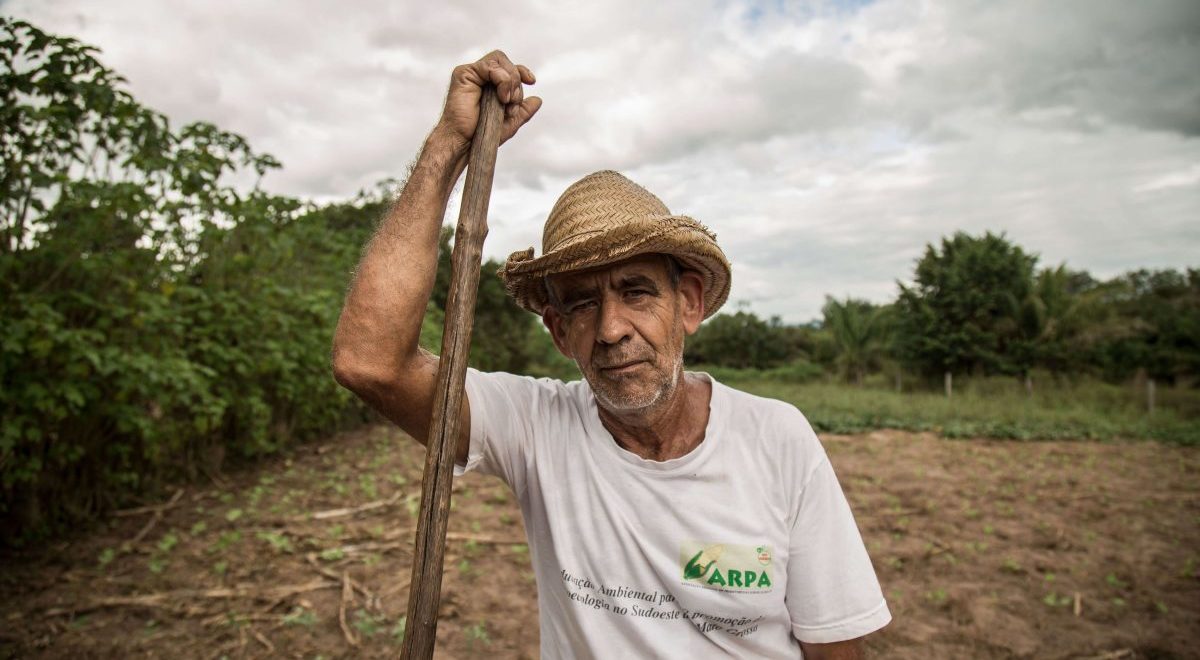Right now, some of the world’s biggest financial firms are meeting to discuss how to turn farming into a financial product. Farmland, in particular, has been described as being like “gold with yield.”
Since the 2008 financial crisis, big investors have seen acquiring farmland as a safe bet to hedge their investments. Hedge funds, banks, and pension funds are buying farms outright. The pension fund TIAA, which is one of the main sponsors of this week’s Global AgInvesting Conference, actually owns over 1.5 million acres of farmland worth $8 billion, making it one of the largest investors in farmland in the world.
Investment is needed in agriculture, particularly to support family farmers and ensure that they can produce healthy food for local communities. However, what these financial firms are discussing at the Global AgInvesting Conference is not investment to help family farmers, as shown by the fact that there are no family farmer speakers on the agenda and the conference entry fee alone is over $3,000!
Their interest is instead largely in speculating on the price of farmland and in the products coming from that farmland, as well as controlling that farmland and renting it back to the farmers. They are making a big bet that as the population increases and as the planet heats up, farmland and access to water will become increasingly scarce, and therefore very valuable in the long-term. That might be a smart bet, but do we really want to leave decisions about the future of food and agriculture to big companies?
This conference reminds me of feudal lords in the Middle Ages meeting to oversee their lands and their peasants. The last decade has seen a major global land grab, as tens if not hundreds of millions of acres of land in the Global South were sold and leased to foreign companies and governments to produce cash crops, not food crops. There is a rush to control land, water, and natural resources as part of a “green” grab, especially as the global economy shifts from fossil fuels to biofuels like sugarcane and corn ethanol – and family farmers are losing out.
There is a rush to control land, water, and natural resources – and family farmers are losing out.
Family farmers know that ownership of large farms by investors like TIAA, who want to control land and water and bet on the future value of these natural resources, is a recipe for the end of family farming as we know it. The existence of large farmland funds like TIAA’s create demand for farmland that leads to unethical and even illegal activities.
In northeast Brazil, TIAA has invested in an area with huge land conflicts and allegedly channeled those purchases through the company of a known land grabber, in what could be called “land grabbing by outsourcing.”
In the U.S., where TIAA is working to expand their holdings, the number of family farmers has shrunk to its smallest number in history. Crop prices are the lowest they have been in decades, and a farm crisis is on the horizon. On top of this, most of the farmers in this country are facing retirement in the next decade in a half. Who will buy this land? Unless something is done, it’ll be large pension funds like TIAA.
Who will buy this land? Unless something is done, it’ll be large pension funds like TIAA.
In light of this situation, as well as TIAA’s investments in an area with huge land conflicts, ActionAid USA is calling on TIAA to come clean about their investments in farmland. Together with our allies and supporters, we’re in New York today to deliver our petition at TIAA’s headquarters!
Many people do not know that their pension funds are using their money to buy up farmland, and the fact that it costs so much to get into the Global AgInvesting Conference suggests that the industry is not interested in publicizing their activities.
Family farmers need support, and we need to invest in rural communities and rural livelihoods to produce healthy food. What we don’t need is widespread land speculation and a new rural landlord class of hedge funds, banks, and pension funds. That should concern all of us.



